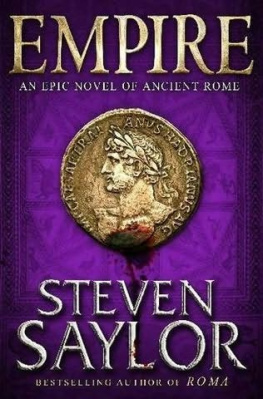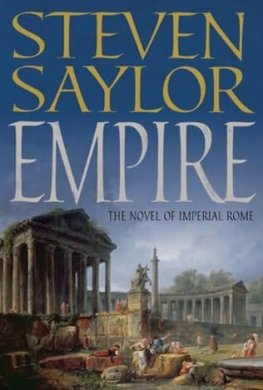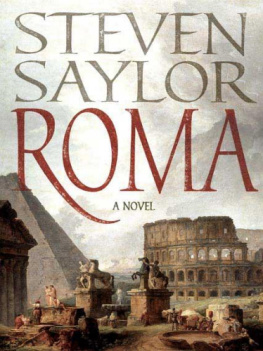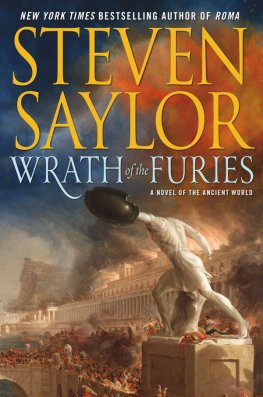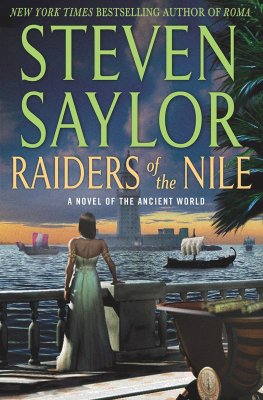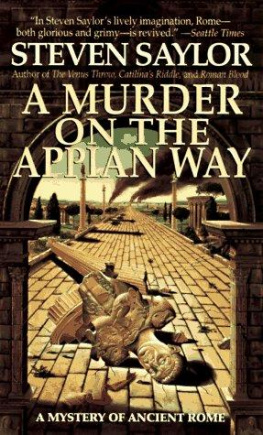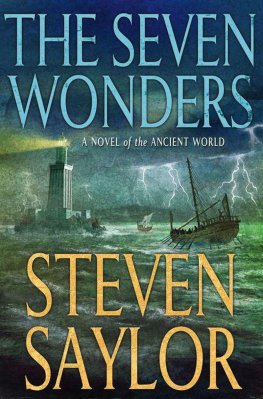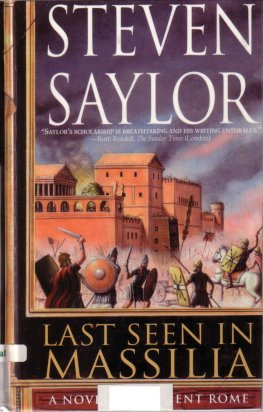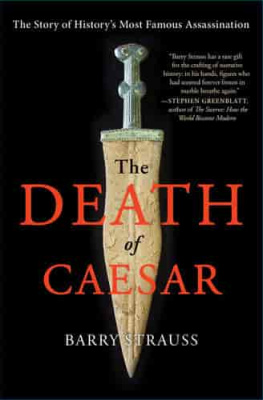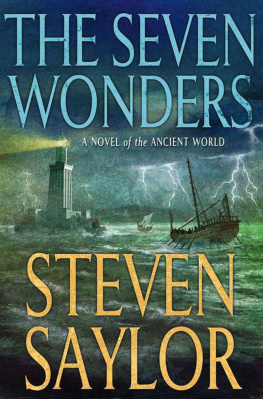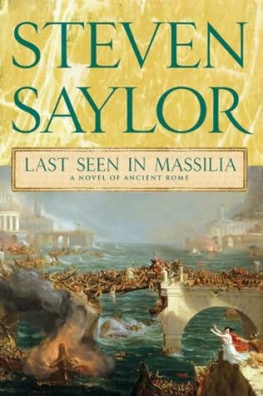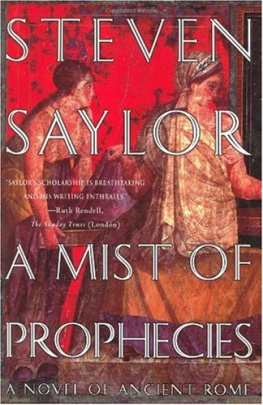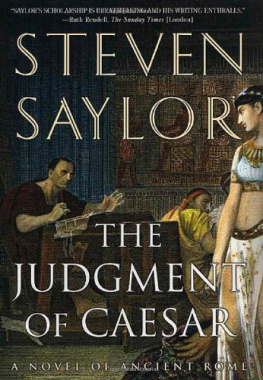AUTHORS NOTE
Empire is a novel about life in the city of Rome from the reign of Augustus, the first emperor, to the height of the empire under Hadrian; it spans the years A.D. 14 to 141. In a previous novel, Roma, I followed the same family line from the origin of the city to the rise of Augustus and the end of the Roman Republic.
In some ways, the time span portrayed in Empire is one of the most accessible periods of history. The major historians, including Suetonius, Tacitus, and Plutarch, are widely available to readers around the world in the original Latin or Greek or in numerous translations, and even the most minor written sources (inscriptions, fragments of poems, etc.) can be tracked down by a determined reader. The archaeological evidence is very rich: the entire city of Pompeii was preserved when Vesuvius buried it in A.D. 79, some of the major buildings of the era are still standing (such as the Pantheon), and excavations in the city of Rome continue to yield fresh finds, like the chamber believed to be the Lupercale of Augustus, the discovery of which was announced in January 2007. More evidence comes from numismatics, and worldwide trade in Roman coins on the Internet has made large, sharp images of even the most obscure coins widely accessible. With all these sources to draw on, the period is much favored by modern historians, who produce more books every year about the Roman Empire than any person could ever hope to read.
And yet, for the novelist, the period poses a special problem: the emperors. Or rather, emperor-centricism.
When I wrote Roma, I faced a very different challenge. The sources of information for the first thousand years of the city are far more limited, yet the narrative offered by those sources is almost unimaginably rich: legends of demigods and heroes, stories of social upheaval and violent class struggle, history as a pageant of powerful families, factions, and personalities all striving to fulfill their particular destinies. The challenge was somehow to find room for this teeming cast of characters in a single novel.
With the end of the Republic and the rise of autocratic rule, the storyline changes. Class conflict and individual heroes (and villains) recede. Its all about the emperors: their personalities, their families, their sexual habits, their often flamboyant lives and their sometimes bloody deaths. The story of Rome becomes a sequence of biographies of the men who ruled the empire. Everything and everyone else is secondary to the autocrat.
Thats alright, if you want the emperors to be the focus of your fiction, as in Robert Gravess I, Claudius or Marguerite Yourcenars Memoirs of Hadrian. But autocracies, where all power is concentrated in very few hands, where even the boldest generals serve at the whim of their master and even the best poets bend their talents to flatter the autocrat, do not produce the kind of larger-than-life heroes who populated Roma, like Coriolanus or Scipio Africanus. Instead, stripped of any hope of being able to affect the course of human eventsor even their own livespeople seek diversion in spectacle and empowerment through magic, or they turn inward, pursuing mental or spiritual enlightenment rather than military glory or political action. Such a milieu makes for a very different sort of story than the one told in Roma. Heroes and villains give way to survivors and seekers.
Its popular these days to compare Rome to the United States, but life in the Roman Empire was probably more like life in the repressive Soviet Union. The Soviet empire never found its Trajan or Hadrian, but its not hard to picture Stalin as Domitian.

Readers of Empire who wish to read the original sources can begin with Suetonius, who wrote biographies of the first twelve Caesars, from Julius to Domitian. Plutarch wrote biographies of Otho and Galba. Tacitus in his Annals and Histories wrote about the period from Tiberius to the Year of Four Emperors. We have no ancient biography of Nerva or Trajan, but the thread is picked up in a work called the Historia Augusta, which tells us about Hadrian and his successors. Given the biases and methods of these ancient authors, there is reason to doubt the veracity of all these works. Making sense of their mixture of the true and not-true keeps modern historians busy.
Dio Cassius is another important source, though the books of his Roman History that cover the period after Claudius survive only in fragments and in abridged form. Josephuss The Jewish War describes the bitter conflict between Rome and Jerusalem. Plinys Natural History is full of historical details, hopefully more accurate than his scientific observations. The letters written by his nephew, Pliny the Younger, give us a vivid portrait of his times, including the eruption of Vesuvius, the paranoid reign of Domitian, and Trajans ask not, tell not policy regarding the troublesome Christians. Our major source for the life of Apollonius of Tyana is a fanciful account by Philostratus, who lived a hundred years later; purportedly a biography, it might better be called a novel.
Poets and playwrights also provide many historical details and images of daily life. Under Augustus, we have Virgil, Horace, and Ovid; under Nero, Petronius, Seneca, and Lucan; under later emperors, Quintilian, Martial, and Juvenal.
The joke about two fifteen-year-olds versus one thirty-year-old comes from the oldest known joke book, a Greek text called the Philogelos (The Laughter-Lover). I first heard it from Mary Beard when she delivered the annual Sather Lecture series at the University of California at Berkeley in 2008. The joke as originally recorded does not mention Trajan, but it suits him. (A later emperor, Julian, made his own joke about Trajan in his satire The Caesars; when Trajan visits the Olympians, Zeus had better look out, if he wants to keep Ganymede for himself!)
The sophist Dio of Prusa, who appears in the novel, is better known as Dio Chrysostom (Golden-Mouthed, an epithet applied to him by later generations). It is Dio, in his Discourse 21, who tells us that Sporus had something to do with the death of Nero, who otherwise might have continued to reign. This is J. W. Cohoons translation, with italics added: It was solely on account of this wantonness of his, however, that he [Nero] lost his lifeI mean the way he treated the eunuch [Sporus]. For the latter in anger disclosed the Emperors designs to his retinue; and so they revolted from him and compelled him to make away with himself as best he could. Indeed the truth about this has not come out even yet; for so far as the rest of his subjects were concerned, there was nothing to prevent his continuing to be Emperor for all time, seeing that even now everybody wishes he were still alive.
Where poems are quoted in the novel, the translations are my own. Tacitus (Annals, 15.70) tells us that Lucan spoke his own verse as his dying words; historians conjecture he quoted Pharsalia, 4:51617. The poem by Statius casting Earinus as the cupbearer of Domitian is Silvae, 3.4. Earinuss song is from Lucretiuss De Rerum Natura (On the Nature of Things); a previous version appeared in my novel Arms of Nemesis. Martials poem celebrating the arrival of Trajan in Rome is Epigrams, 10.6. The lines by Virgil used to describe Ceionius are from the Aeneid, 6:86970. The poem by Hadrian is known to us from his biography in the Historia Augusta.
Almost all the sources cited above can be found, in English translation and in searchable formats, on the Internet; one merely has to open a search engine and start looking. My own research led me almost daily to Bill Thayers site LacusCurtius, a remarkable fountainhead of information that includes the texts of Suetonius, Tacitus, Plutarch, the

